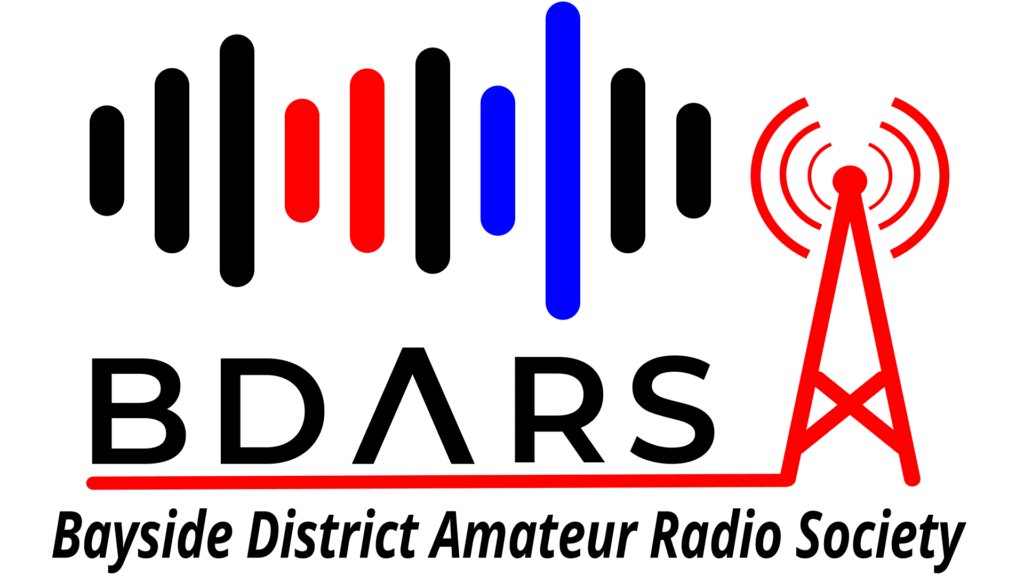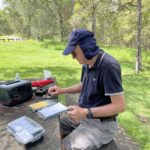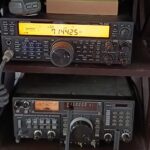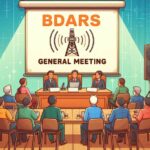Where can I learn more about amateur radio?
The ABC published this brilliant overview of amateur radio in 2018 – it is just as relevant today.
Here are some useful websites.
The Wireless Institute of Australia
The Radio Amateur Society of Australia
The American Radio Relay League
The Radio Society of Great Britain
Do I need to hold an Amateur Radio Licence to be a member of BDARS?
The answer is no. We welcome both licensed and non-licensed people to come along to the club, see who we are and get involved if you like what you see.
How do I join BDARS?
Membership of the Society is open to all with an interest in communication via radio. We welcome those living locally, interstate or overseas. Students are especially welcome. You are not required to hold a radio license for membership of BDARS but we are here to help you gain your license from the authorities.
If you are interested in becoming a member then the best thing to do introduce yourself via email (see the “contact us“ section of this website. The membership application form can be downloaded from this link: membership form. You can then post or email your details to the secretary@bdars.org.au
If you are already a licensed amateur radio operator, please call in on the regular nets as detailed on the activities page. Membership is not required for use of the nets.
You may pay your membership fee, currently AU$45 per annum, at a club meeting or deposit into the society’s bank account (see below).
What are the BDARS club bank details?
BSB 124-025 (BOQ)
Account number 10227910
What are the three License Classes in Australia?
There are three classes of Amateur license; Foundation, Standard and Advanced with examinations of increasing difficulty. The syllabus for all these licenses is readily available from the AMC, and members of the Society are available to assist students achieve their goals.
The time taken for a training course at entry level (Foundation License) is typically around 12 hours and the requirements are not onerous.
It is not necessary to learn or have knowledge of Morse Code (CW) to obtain any grade of Amateur Radio license. This requirement was abolished in 2004 but CW as it is called is still used by a vast number of operators around the world. There is also recognition for prior learning so more qualified persons need not be deterred.
How do I get an Amateur Radio License?
It’s not as hard as you may think. This is a common request, and we are happy to help. It is possible to commence the study by logging into the Radio Electronics School website and using the Foundation theory and Practical videos. The net address is https://res.net.au
If there is any problem with the study or you need help with then make a note of it and bring it along to the meetings. Our members Martin VK4MCU, Bob VK4YA or Eddie VK4TJE will be happy to help (as will all other members – we are a friendly club).
AMC Amateur Radio at the Australian Maritime College is responsible for the management of all functions associated with amateur radio examination services in Australia. Their fee structure is spelt out here. https://www.amc.edu.au/industry/amateur-radio
The next step is to email our BDARS Exam Coordinator eddiet@exemail.com.au with your contact details, phone number, and address.
What are the typical procedures for exams run by BDARS?
Our club Assessors are Eddie VK4TJE and Bryn VK4GF
AMC request online payment only. It is preferred if the candidates can make the payment to AMC prior to the exam. Bring the reference number so it can be entered on the exam paper for confirmation.
Also it is advisable that the candidates check the AMC callsign database to select two preferred available callsigns to enter on the paperwork. These callsigns are now available for life, regardless of where you actually live. You just need to keep the ACMA up to date on your actual current address.
. A preferred maximum of six Candidates is allowed at each exam event. The exams are currently held at the Alexandra Hills State High School. We meet in room T7 and only use the Administration carpark. We can use two adjoining demountable rooms with projector and whiteboard in Room C5.
There will be tea and coffee provided but candidates are responsible for providing a light lunch for themselves.
The exams event starts at 0900, with room access from 0830. The general form is for an informal review of learning with the candidates, Q&A’s, and a practical demonstration in the morning, and then the exams will start after lunch. We do cover the practical in the morning review, so don’t worry if you need to build a little more confidence for that part.
The specific dates for each exam will be posted closer to the date. Also as exam papers must be ordered about fifteen days prior, the nominations need to advised and paid for by then. Please send your exam booking confirmation, once paid for, to examiners@bdars.org.au with full contact details including phone number prior to the cutoff date, as above, to avoid missing out.
I’ve got skills that maybe useful to the Society
We welcome all members with differing backgrounds and skills sets that will be of benefit to the Society and its members
I’m interested in building antennas and electronics – does the Society do anything like that?
BDARS has a very active Makers group who are always doing projects that are of great interest to many of the members



